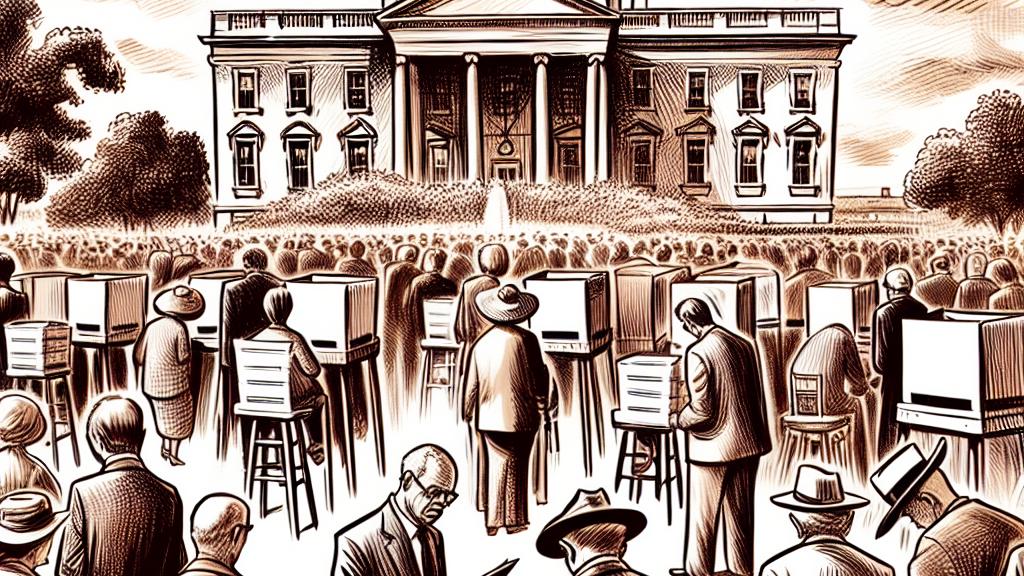Continuing Voting in the U.S. Presidential Election
Overview
- Voting is currently in full swing across the United States for a pivotal presidential election that could reshape the nation's future.
- Key candidates Kamala Harris and Donald Trump are engaged in a high-stakes battle that has captured the attention of millions both domestically and globally.
- With record numbers of early voting, citizens are expressing their views on crucial issues, making this election one of the most consequential in recent history.

The Current Voting Landscape
As Americans head to the polls on November 5, 2024, they do so with a sense of purpose and urgency. Voter turnout is not just significant; it's historic. In this election, Kamala Harris, poised to make history as the first female president, competes against Donald Trump, who seeks a thrilling comeback to the Oval Office. The air is charged with anticipation, as voters are acutely aware that their decisions today will echo into the future, potentially influencing the trajectory of key policies on healthcare, education, and foreign relations.
Unprecedented Early Voting Participation
Early voting statistics tell a compelling story: over 82 million Americans made their voices heard ahead of Election Day—a monumental achievement that reflects an engaged electorate ready for change. For instance, in states like Pennsylvania and Florida, long lines formed as voters braved the elements to cast their ballots. This enthusiasm is not just a statistic; it represents families, communities, and individuals who care deeply about their country’s direction. Whether it’s the rising costs of healthcare or the urgency of climate legislation, every issue resonates at a personal level, driving voters to take action.
Challenges and Diverse Voter Concerns
However, this election day hasn't been without its challenges. In Georgia, several polling stations received alarming bomb threats that caused temporary evacuations. Thankfully, thorough searches confirmed that there were no explosives, allowing voting to resume swiftly. Such incidents remind us of the heightened tensions surrounding the electoral process. More than just a vote, this election encapsulates pressing topics such as immigration reform and economic stability, pressing citizens to consider their options carefully. Each ballot is a chance to influence not only their own future but the future of their communities as well.

Loading...